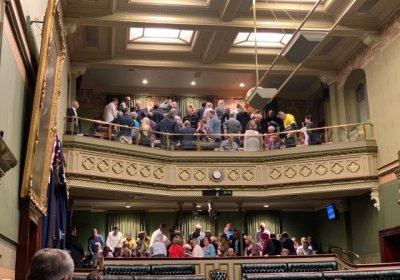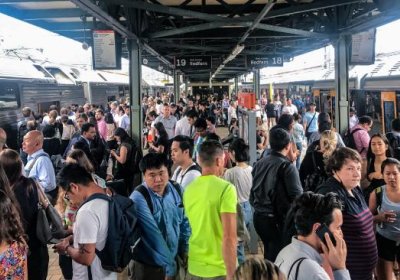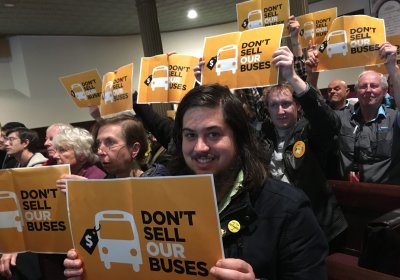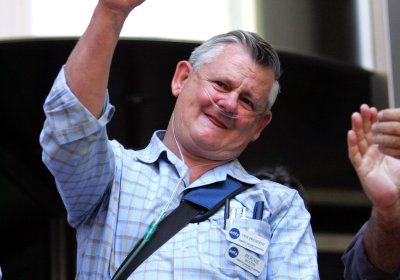Peter Boyle reports that bus drivers and their supporters turned their backs on NSW transport minister Andrew Constance on March 5, in protest at the government's privatisation of bus services.
Andrew Constance
An “Act of God”, or lightning, was a key reason for the recent meltdown of Sydney’s rail network, according to transport minister Andrew Constance. He also claimed that the “dark arts of unionism” — presumably some sort of devilry — inspired rail unionists to vote to strike over pay and rosters on January 29.
Politicians may blame God and the Devil for recent transport chaos, but when the dots are joined between different aspects of the government’s transport policy the reality becomes clearer.
As the NSW Coalition government continues to lurch between a growing number of transport-related crises, a number of pro-public transport groups and the Rail, Tram and Bus Union (RTBU) are busy organising a “Fix NSW Transport” rally on February 17 in Sydney’s CBD.
The rally is a bold attempt to unite many transport-related campaigns across NSW and ensure that public transport remains a major election issue.
Even though the NSW government convinced Fair Work deputy commissioner, Jonathan Hamberger on January 25 that the Rail Tram and Bus Union’s (RBTU) overtime ban and proposed 24-hour strike should be suspended, Sydney’s hard-pressed commuters continue to support railway workers’ demand for an agreement that does not mean drivers have to work overtime to take home a fair wage.
Railway workers want a wage rise of 6% a year over the next four years to bring them in line with wages for drivers in other states.
More than 200 people packed into the Pitt Street Uniting Church on June 28 to protest the state government’s plans to privatise public bus services in the city's inner west.
The community assembly, organised by UnionsNSW and the Sydney Alliance, drew bus drivers and other workers, unionists and concerned members of the public to join the growing campaign to stop the sell-off of public transport.





